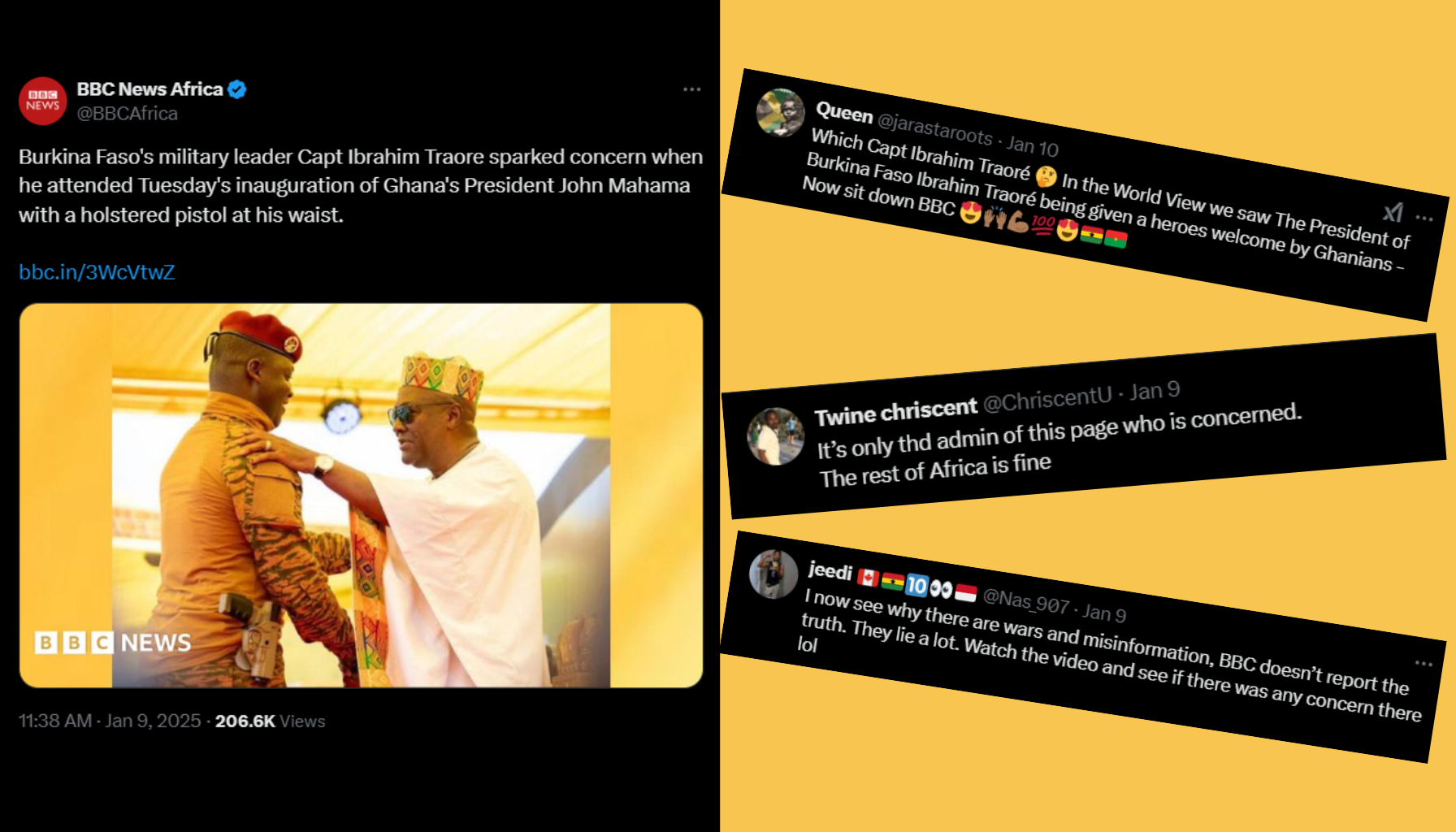The BBC vs. Community Notes: When Truth Becomes a Battleground
It happened again—another big media outlet got caught twisting the facts. This time? The BBC. But instead of the usual quiet acceptance, the internet pushed back. Thanks to Community Notes on X (formerly Twitter), the real story surfaced, proving yet again that independent fact-checking is shaking up the media landscape.
The BBC’s Version vs. Reality
On January 9, 2025, Ghana swore in President John Mahama. Among the guests was Burkina Faso’s President Ibrahim Traoré, arriving with his signature look—a gun strapped to his chest. This wasn’t some security failure. It was just Traoré being Traoré, a look that resonates with his supporters.
The BBC, however, took a different angle. Their headline hinted at panic, suggesting Traoré’s gun had caused alarm among attendees. Fear, unrest, maybe even a security crisis—except, none of that actually happened.
Cue Community Notes.
Users on X quickly flagged the misleading headline. The real story? Far from being alarmed, the Ghanaian crowd gave Traoré some of the loudest cheers of the day. He wasn’t feared. He was embraced.
Media Bias? Again?
This isn’t some rare slip-up. It’s a pattern. Legacy media, obsessed with control, often shapes stories to fit an approved narrative. The BBC’s framing of Traoré’s visit? Just another example of how the press creates controversy where none exists.
Why do they do this? Simple: fear sells. Sensationalism drives clicks. A story about a controversial African leader “sparking panic” at a major event fits neatly into the Western media’s favorite narrative—instability in Africa.
This time, though? They got caught.
The Rise of Grassroots Fact-Checking
Enter Community Notes, the internet’s answer to biased reporting. Unlike mainstream “fact-checkers,” often tied to their own agendas, Community Notes operates differently. Before a note gets published, users from different backgrounds have to agree on its accuracy. That makes it one of the most effective tools for challenging misinformation.
In this case? Community Notes did what the BBC wouldn’t—report the truth.
Why This Matters
Trust in Legacy Media Is Dying
Every time a major outlet gets caught twisting facts, public trust erodes. If the BBC misrepresented this, what else are they distorting?
Social Media Is Changing the Game
Traditional media used to have full control over information. Not anymore. Platforms like X are democratizing fact-checking, making it harder for biased narratives to go unchecked.
Weaponizing Cultural Bias
The BBC’s take on Traoré exposes a deeper issue—Western media’s failure to understand different cultural norms. In many African countries, a leader carrying a weapon symbolizes strength, not danger. Instead of explaining this, the BBC chose to spin a fear-mongering story.
Final Thoughts
The internet just handed the BBC a reality check. The days when big media could distort the truth without pushback are fading. Thanks to decentralized fact-checking, citizens now hold the press accountable.
The lesson? Don’t believe everything you read—especially from mainstream outlets. More often than not, the real story is the one they don’t want you to see.

